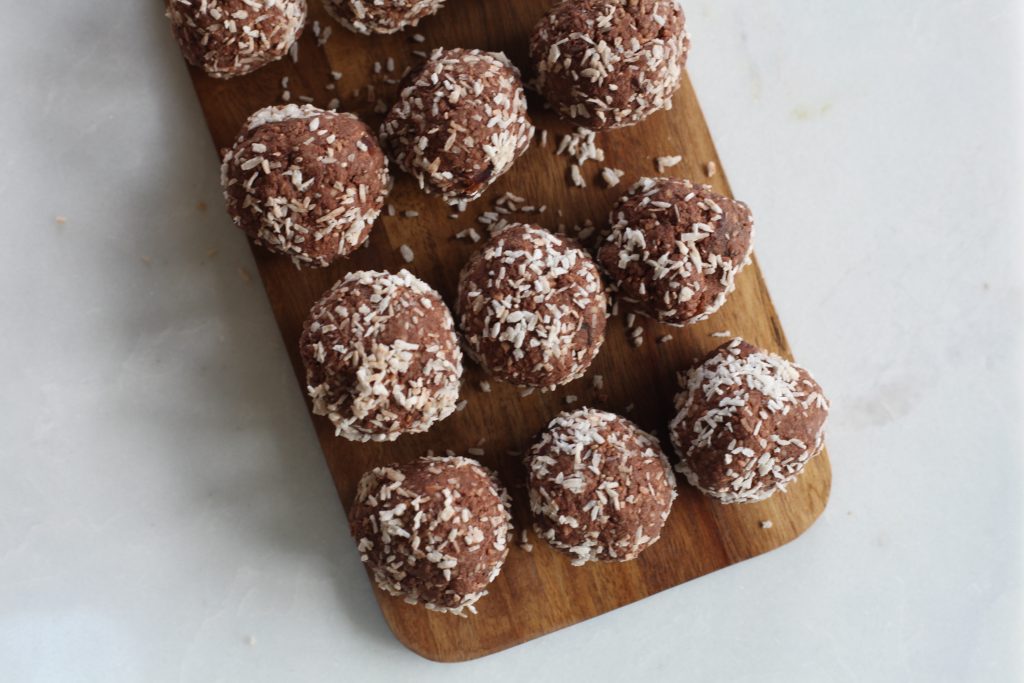The immune system is a busy network throughout our entire body including cells, vessels, lymphoid tissue, nodes, nodules, bone marrow, and organs.
Our thymus gland helps regulate the immune system, and is the storage tank for immune cells responsible for eradicating viruses.
The spleen recycles iron, captures and destroys pathogens and initiates the maturation and release of immune cells when the body is required to fight infections.
The lymphatic system is a filtering system removing waste and obsolete immune cells from our entire body through a system of lymph nodes and vessels. Mucous membranes in our respiratory system and gastrointestinal tract, tonsils, and adenoids also contain lymphatic tissue.
Our immune system would not be complete without the gut-associated lymphoid tissue (GALT) – and Peyer’s patches in the small intestine. Nearly 80% of our immunity is actually based in the digestive tract.
A robust immunity has many lines of defence
Our immune system is equipped with a multi-tiered response to battle with foreign invaders 24/7.
The innate immune system includes a first line of defence which prevents pathogens (germs) from gaining entry into the body. The skin, mucous membranes, gastrointestinal tract and secretions (mucous, vaginal secretions, bile, gastric acid, saliva, tears, and sweat) all play an important role.
The next line of defence houses our infection-fighting cells such as natural killer cells and phagocytes which act like Pac-men against microbial invaders. The immune system also releases antimicrobial proteins such as complement and interferon which interfere with virus replication and cell-to-cell communication.
Our adaptive immune system also keeps a record of every germ it has ever defeated so it can recognise and destroy the microbe quickly if it enters the body again.
A balanced whole-foods diet containing real foods rich in antioxidants, vitamins, and minerals can help build robust immunity.
Key vitamins and minerals to boost immunity
Vitamin C
Vitamin C builds resistance to infection and stimulates immune cells and proteins which help eradicate viruses.
Vitamin C-rich foods include veggies such as red capsicum, broccoli, cabbage, cauliflower, spinach, parsley, and sweet potato. Fruits such as kiwi, berries, pawpaw, pineapple, citrus, guava, broccoli, mango, currants are great sources of vitamin C. Rosehip, camu camu, and Kakadu plum provide concentrated powdered forms of vitamin C widely available through health food shops. One we recommend is Wild C.
In some circumstances, vitamin C supplementation may be beneficial. Having small amounts of vitamin C throughout the day may reduce the likelihood of any gastrointestinal side effects.
Quercetin
Quercetin is a flavonoid reported to have antiviral properties in numerous studies. Vitamin C and quercetin taken together, has a synergistic antiviral action.
Quercetin is contained in apples, honey, raspberries, strawberries, blackberries, onions, red grapes, cherries, citrus fruits, and green leafy vegetables.
Zinc
Zinc plays a crucial role in supporting immune cell production and modulation of immunity.3, 4 Common zinc deficiency signs include frequent and prolonged colds, and poor wound healing, acne, dermatitis, low stomach acid, poor smell or taste. White spots on nails may also be a sign of zinc deficiency.
There are many factors that may contribute to zinc deficiency. Inadequate dietary intake, poor absorption, loss through perspiration, and high iron and copper levels can have a detrimental impact on zinc homeostasis.
Foods rich in zinc include oysters, seafood, tahini, peanuts, liver, eggs, nuts, seeds, and legumes. Soaking and sprouting legumes, nuts and seeds helps to break down the phytates that may bind to zinc and reduce zinc’s bio-availability.
Keep in mind there are many other nutrients that support the immune system, however, zinc, vitamin c, and quercetin are key when it comes to fighting viruses.
Gut health
Gut health plays an important role in immunity.
Including prebiotic (skins on vegetables and fruit, psyllium husks, slippery elm, etc.) and probiotic-rich foods (kimchi, sauerkraut, kefir, tempeh, kombucha, miso, and quality yogurt) can improve your immunity. Probiotics can also improve sports performance as discussed on our blog here.
Don’t self-sabotage your immunity
Avoid substances that reduce immune system function.
Diets high in saturated fats, sugars, and refined carbohydrates have been shown to contribute to the prevalence of obesity and type 2 diabetes, and increase the risk for severe COVID-19 pathology and mortality. 5 Studies suggest sugar reduces the capacity of white blood cells for up to 5 hours within 1 hour of consumption. Sugar can also feed fungi such as candida which deplete the immune system and increase fatigue.
Caffeine or other stimulants can stress your nervous system, reduce sleep and deplete stores of zinc, and magnesium. Switching your second coffee for a green tea has been shown to improve innate immunity.
Enjoy alcohol in moderation. Excessive alcohol may also suppress the immune system and increased susceptibility to respiratory pathogens and lung injury.
Sleep has an influence on immunity maintenance and immunological response and can increase your risk of picking up infections. Obtain at least 8 hours of sleep every night, ideally hitting the pillow before 10 pm.
Chronic stress depletes the immune system. Focus on what you can control and avoid getting caught up in daily news. Your mindset matters in times of stress and unpredictability. Consider ways of dispelling stress such as meditation, mindfulness, reading, or creative activities. Don’t forget laughter has been shown to improve immunity and mental health.
Keep your exercise balanced and consistent. Regular exercise improves immunity however excessive exercise of long duration and intensity can make athletes more susceptible to respiratory infections.
If you feel you need to boost your immunity, feel free to contact us and let’s discuss how we can help.
References
1. Carr AC, Maggini S. Vitamin C and Immune Function. (2017) Nutrients. 3;9(11):1211.https://pubmed.ncbi.nlm.nih.gov/29099763/
2. Askari et al., Quercetin- an overview. (2017). Nutrient Delivery https://www.sciencedirect.com/topics/agricultural-and-biological-sciences/quercetin
3. Maywald M, Wessels I, Rink L. Zinc Signals and Immunity. Int J Mol Sci. 2017 Oct 24;18(10):2222. doi: 10.3390/ijms18102222.
4. Skalny AV, Rink L, Ajsuvakova OP, Aschner M, Gritsenko VA, Alekseenko SI, Svistunov AA, Petrakis D, Spandidos DA, Aaseth J, Tsatsakis A, Tinkov AA. Zinc and respiratory tract infections: Perspectives for COVID‑19 (Review). Int J Mol Med. 2020 Jul;46(1):17-26. doi: 10.3892/ijmm.2020.4575.
5. Butler MJ, Barrientos RM. The impact of nutrition on COVID-19 susceptibility and long-term consequences. (2020) Brain Behav Immun. Jul;87:53-54. doi: 10.1016/j.bbi.2020.04.040.
6. Does Sugar Weakn the Immune System? Biotics Research. 2020. www.blog.bioticsresearch.com
7. Chowdhury P, Barooah AK. Tea Bioactive Modulate Innate Immunity: In Perception to COVID-19 Pandemic. Front Immunol. 2020 Oct 28;11:590716. doi: 10.3389/fimmu.2020.590716.
8. Yeligar SM, Chen MM, Kovacs EJ, Sisson JH, Burnham EL, Brown LA. Alcohol and lung injury and immunity. Alcohol. 2016 Sep;55:51-59. doi: 10.1016/j.alcohol.2016.08.005
9. Silva ESME, Ono BHVS, Souza JC. Sleep and immunity in times of COVID-19. Rev Assoc Med Bras (1992). 2020 Sep 21;66Suppl 2(Suppl 2):143-147. doi: 10.1590/1806-9282.66.S2.143.
10. Dhabhar FS. Effects of stress on immune function: the good, the bad, and the beautiful. Immunol Res. 2014 May;58(2-3):193-210. doi: 10.1007/s12026-014-8517-0.
11. Yim J. Therapeutic Benefits of Laughter in Mental Health: A Theoretical Review. Tohoku J Exp Med. 2016 Jul;239(3):243-9. doi: 10.1620/tjem.239.243
12. Cerqueira É, Marinho DA, Neiva HP, Lourenço O. Inflammatory Effects of High and Moderate Intensity Exercise-A Systematic Review. Front Physiol. 2020 Jan 9;10:1550. doi: 10.3389/fphys.2019.01550





